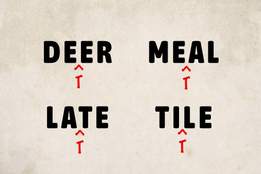cannabinoid
noun
can·na·bi·noid
kə-ˈna-bə-ˌnȯid 

1
: any of various naturally-occurring, biologically active, chemical constituents (such as cannabidiol or cannabinol) of hemp or cannabis including some (such as THC) that possess psychoactive properties
The presence of cannabinoids in urine indicates marijuana use, and a great deal of weight is often placed on positive findings.— Arthur J. McBay et al.
Arthur J. McBay et al.
 Arthur J. McBay et al.
Arthur J. McBay et al.The study concluded that cannabinoids—marijuana's active components—can be useful in treating pain, nausea and appetite loss caused by advanced cancer and AIDS.— Claudia Kalb
Claudia Kalb
 Claudia Kalb
Claudia Kalb2
: a substance that is structurally or functionally similar to cannabinoids derived from hemp or cannabis:
a
: any of several substances (as anandamide) naturally produced within the body : endocannabinoid
Move over, endorphins. Postexercise euphoria may actually be the result of naturally occurring cannabinoids—the same family of chemicals that gives marijuana smokers their high, a new study suggests.— Prevention
Prevention
 Prevention
PreventionDaniele Piomelli and his colleagues report isolating from cocoa powder and three different brands of chocolate a substance called anandamide, a cannabinoid that occurs naturally in the brain.— Science News
Science News
 Science News
Science News
b
: a substance that is synthetically produced to mimic the effects of natural cannabinoids
Toxicologists know only that synthetic cannabinoids bind to certain receptors in the brain and they understand nothing about the drug's long-term health effects.— Steve Featherstone
Steve Featherstone
 Steve Featherstone
Steve FeatherstoneThese products contain synthetic cannabinoids, which produce some of the euphoria associated with natural marijuana, but they can also be accompanied by a wide range of negative health effects not associated with cannabis.— James Maynard
James Maynard
 James Maynard
James MaynardLove words? Need even more definitions?
Merriam-Webster unabridged








Share